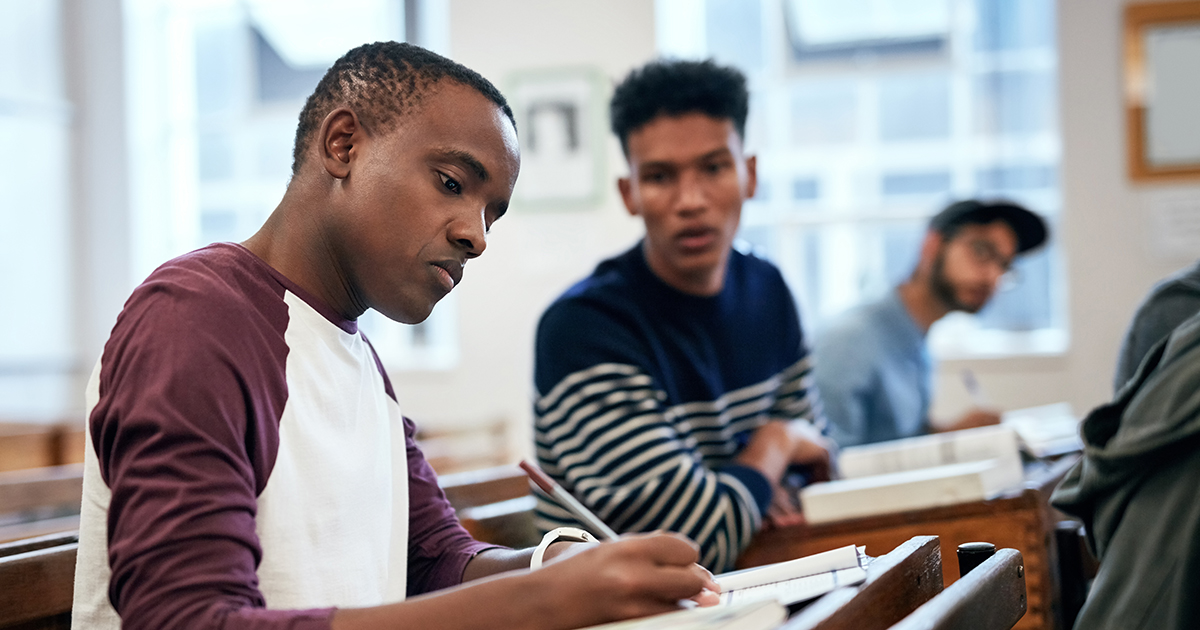Pathway to College Achievement
A Mixed-Methods Evaluation of the Male Student Success Initiative for Men of Color

Access to college has increased substantially over the last 50 years, but student success—defined as the combination of academic achievement and degree or certificate completion—has largely remained stagnant. The gap between access and success is particularly noteworthy for male Black and Hispanic students, whose college completion rates lag those of White students and of female students of any race or ethnicity.
To address these patterns, the Community College of Baltimore County (CCBC) created the Male Student Success Initiative (MSSI) in 2014. The program was designed to support male students of color throughout their academic journeys. In partnership with CCBC, MDRC, through its Men of Color College Achievement (MoCCA) project, evaluated a redesigned MSSI program that provided a culturally relevant student success course as well as comprehensive support services such as mentoring and academic development workshops.
An earlier report presented findings on how MSSI was implemented in 2019, the first year of the MoCCA study. This report presents findings from a mixed-methods evaluation that covered the entire program period from 2019 to spring 2022. The evaluation consisted of: (1) a randomized controlled trial to estimate the effects of MSSI on student academic progress, using a sample of 514 students, (2) implementation research that focused on how the program was put into effect, (3) qualitative research to obtain a deeper understanding of the student perspective and context, and (4) cost analyses. This report provides the first causal estimates of the effects of a college program targeting male students of color on academic outcomes.
Findings
- The study found that MSSI program components were implemented inconsistently. Despite the implementation challenges, however, MSSI program features created a substantially different experience for students in the program group compared with students in the control group.
- MSSI had positive effects on enrollment in a student orientation course and on passing the orientation course in the first semester—two measures of academic success. The program also had positive effects on increasing students’ ability to perform better in the courses they took after the MSSI program year. However, the program did not affect persistence or credits earned.
- Program impacts were concentrated among first-generation students.
- The average cost of the two-semester program was $885 per student.
It is important to note that this evaluation of MSSI occurred during two national crises that deeply affected the program, its staff, and its students. The first—the COVID-19 pandemic—forced CCBC to change the modality of learning as most classes moved to a virtual format. Second, the killing of unarmed Black people in 2020, including Ahmaud Arbery in February, Breonna Taylor in March, and George Floyd in May, and the resulting public demonstrations, had special salience for MSSI students and staff and also led to some campuswide changes at CCBC. That MSSI had positive effects in this extraordinarily challenging context suggests that the program might generate larger impacts with stronger implementation, though the study design does not permit a conclusive answer.







